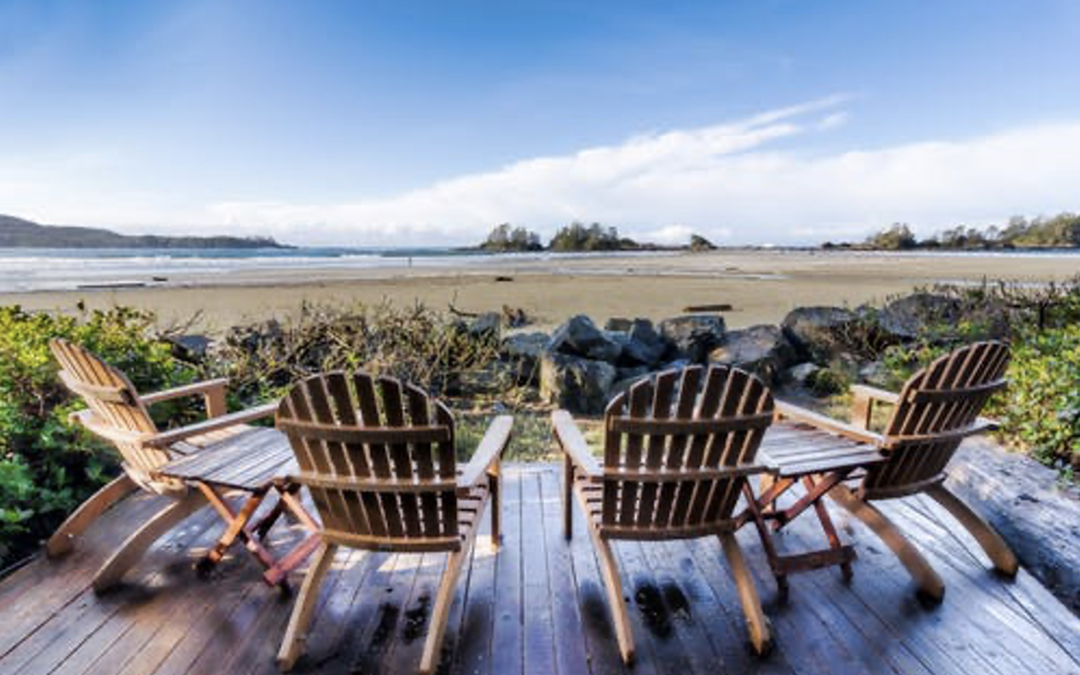As more and more apps and methods to rent a residence on a short-term basis arise, the courts are continuing to grapple with the issue of deciding whether a short-term rental is a “residential use” or not. In Washington, the seminal case on this issue Wilkinson v. Chiwawa Communities Ass’n, ruled that short-term rentals are a residential use180 Wn.2d 241, 244, 327 P.3d 614, 616 (2014). This is still the Washington position on this issue. However, in the last year, other states have started to weigh in on this issue and the courts have not been in agreement with one another
Wilkinson v. Chiwawa Communities Ass’n
The Supreme Court of Washington held in this case that the short-term vacation rentals of homes was a “residential use” of the home; therefore the covenants prohibiting commercial use of a home were not violated. This decision involved owners of homes in the Chiwawa River Pines Community bringing a motion for summary judgment to invalidate an amendment to the community covenants prohibiting rental of their homes for less than thirty (30) days.
The covenants of the homeowners’ association did bar the use of any lot for commercial and industrial purposes. However, there was also a covenant which restricted the size of rental signs. The Court determined that this was evidence that the Chiwawa covenants contemplated rentals and did not intend to restrict them. Moreover, the Court found that if a vacation renter uses a home “for the purposes of eating, sleeping, and other residential purposes,” this use is residential, not commercial, no matter how short the rental duration.
Because the covenants did not place residents on notice that short-term rentals would be prohibited, the Court held that the amendment must be invalidated to protect the “reasonable and settled expectations of landowners in their property.” The Court emphasized that its holding does not prohibit residential communities from prohibiting short term rentals. Rather Chiwawa River Pines community did not do so through covenants allowing rentals while prohibiting commercial uses and limiting homes to single-family structures.
Wilikinson was decided in 2014, but it is still the current Washington position on this issue. Since its decision, there have not been any cases in Washington that have attempted to challenge it. However, in the last year, other states have been split on this issue.
Recent Cases from Other States
In Nevada, the court in Elk Point Country Club Homeowners’ Association, Inc. v. K.J. Brown, LLC found that short term rentals were a residential use of a property. 138 Nev. Adv. Op. 60 (2022). While the governing documents in this case did restrict the use of units to “single family residential purposes only”, they did not contain any prohibition on short-term rentals. Nevada has a statute which states that residents in a community limited to residential use may engage in short-term rentals absent a prohibition in the governing documents. NRS 116.340(1)(a). Since there was no prohibition in the governing documents, the Court ruled that short-term rentals were consistent with the residential use restriction in the governing documents.
In Mississippi, the court in Lake Serene Property Owners Association Inc. v. Esplin also ruled that short-term rentals were a residential use of the property. 334 So.3d 1139 (Miss. 2022). The court determined that “residential purposes” means that the property is being used as a place of abode, i.e. for eating, sleeping and bathing, and that the length of time that someone is using the property for those purposes is irrelevant, so long as none of the commercial aspects of the rental (such as payment, signage, maintaining a rental office) are occurring on or at the property. The court also found that any restriction on the length of the lease or rental would require an amendment to the declaration and could not be adopted through the bylaws.
In Tennessee, the court in Pandharipande v. FSD Corp. found that short-term rentals violate the residential use restriction of the declaration. No. 202001174COAR3CV (Tenn. Ct. App. Apr. 29, 2022). The court ruled that short-term rentals are not residential use because renters only stayed from two to twenty-eight nights, were provided laundry and cleaning services, and were only using the property as a place to sleep in the area.
Finally, in Texas, the previous precedent set by Tarr v. Timberwood Park Owners Ass’n, which ruled that short-term rentals are a residential use has not been disturbed. 556 S.W.3d 274 (Tex. 2018). However, there have been a couple of Texas cases in the last year that have determined that amendments to declarations which restrict or prohibit short-term rentals are enforceable. See Chu v. Windermere Lakes Homeowners Ass’n, 652 S.W.3d 899 (Tex. App. 2022); See also Adlong v. Twin Shores Prop Owners Ass’n, No. 09-21-00166-CV, 2022 Tex. App. LEXIS 1970 (Tex. App. March 24, 2022). These decisions are in line with the reasoning of the Tarr case and other courts (like the Wilkinson court), which state that while short-term rentals are residential uses, an Association may prohibit them through amendments to their declaration.
Conclusion
In summary, the Wilikinson decision is still good law in Washington state and has not been challenged. However, the position that short-term rentals are a residential use has not been adopted unanimously. As shown above, there is another state, Tennessee, which has adopted the opposing position. While there is a slight majority on the national level which supports short-term rentals being a residential use , it has not been consistent. Therefore, the Supreme Court of the United States may need to take up this issue before it can finally be put to bed. Until that time, homeowners in Washington can rest easy in knowing that they can rent their homes on a short-term basis as long as it is not expressly prohibited by their governing documents.

Recent Comments